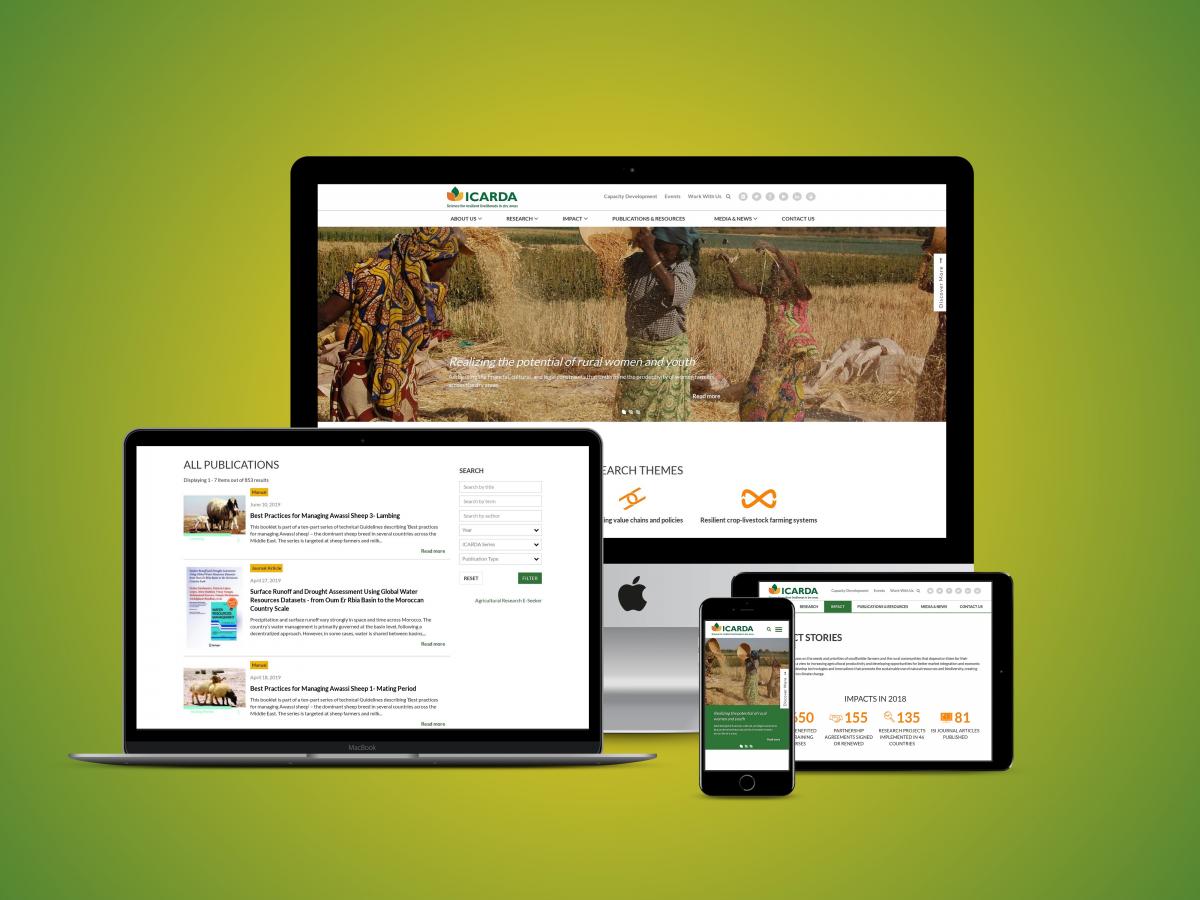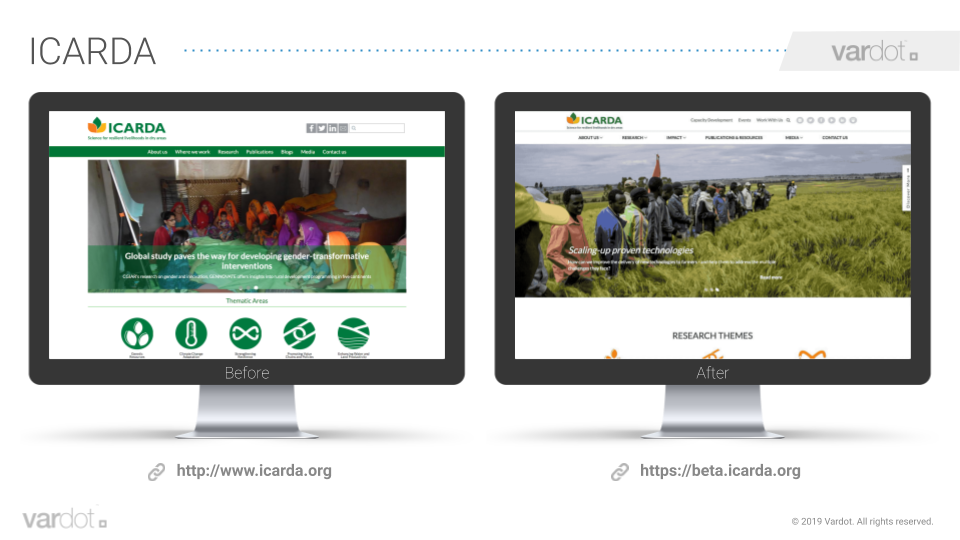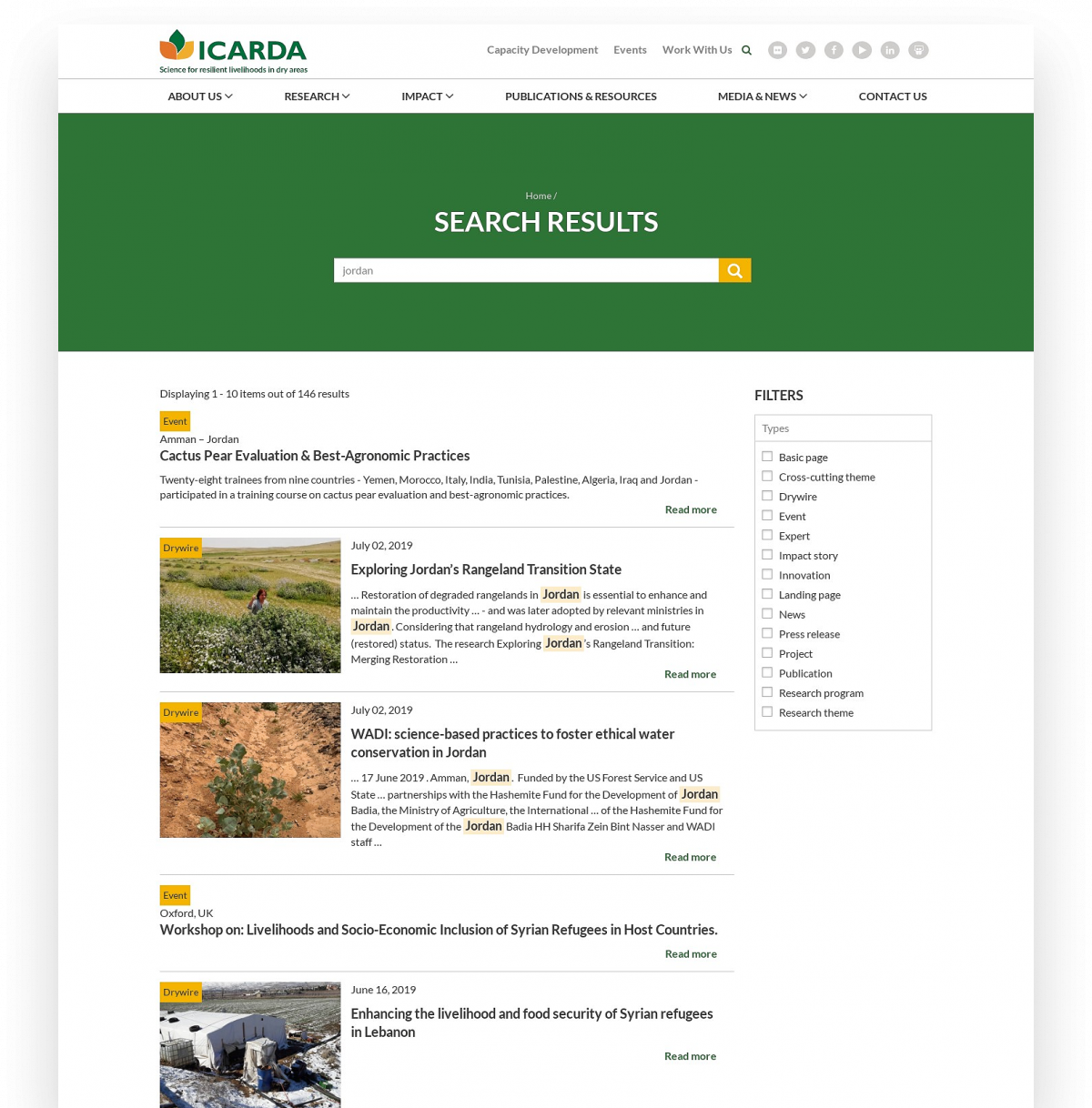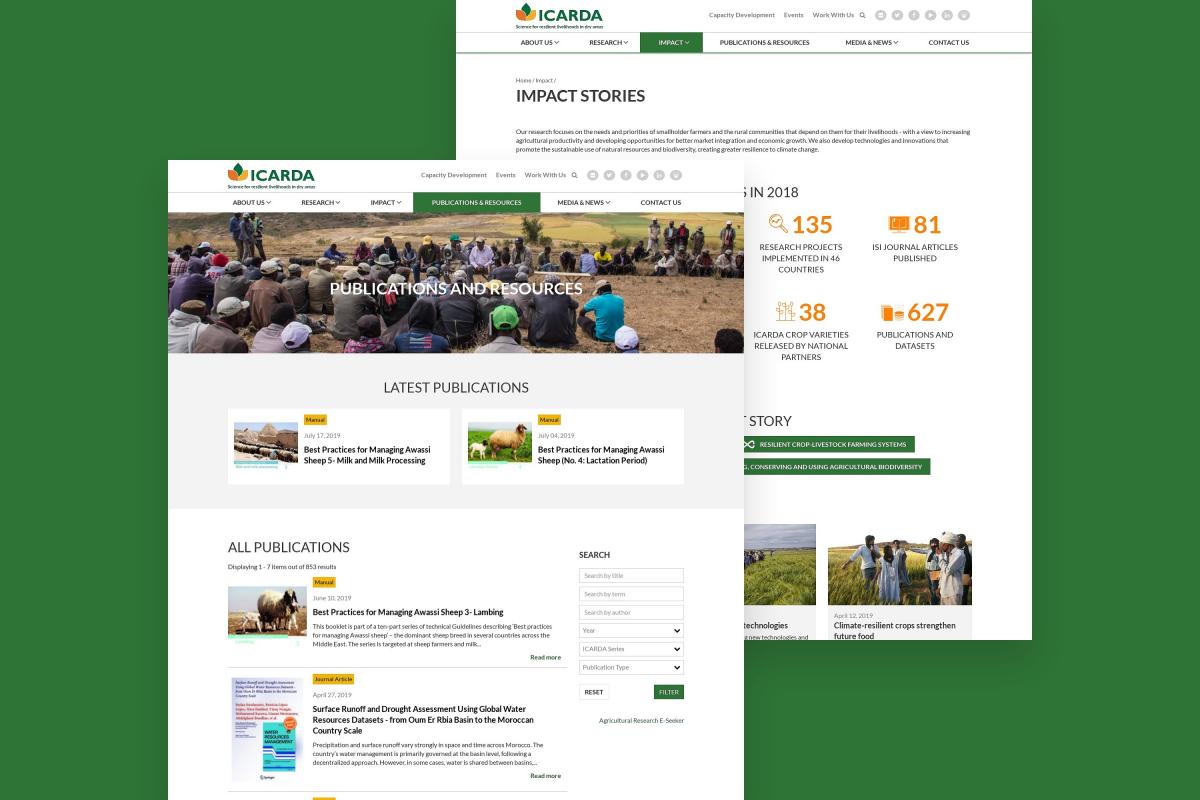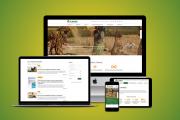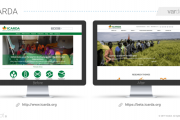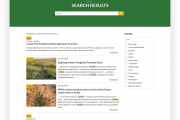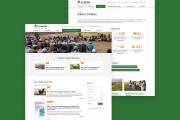ICARDA - International Center for Agricultural Research in the Dry Areas

Non-profit
Case description
ICARDA is an international organization undertaking research for development.They provide innovative, science-based solutions for countries across the non-tropical dry areas. The research aims to reduce poverty and enhance food, water, and nutritional security and environmental health, in the face of global challenges, including climate change.
In mid-2018; ICARDA partnered up with Vardot to build their new web presence and digital experience on Drupal 8. Vardot began with a Discovery and Analysis of the organization and the existing website. Pulling out approx 15 major recommendations all ranked by priority for the site, Vardot began to implement wireframes to visually lay out a user experience based on all the feedback from the stakeholders.
ICARDA operates with numerous global partners and sustains a network between their HQ and regional offices across the world. ICARDA’s research, innovations, and publications require an optimized content publishing and management process for their web admins, editors, and users.
The performance and user experience were vastly enhanced thanks to the capability of Drupal 8 to integrate 3rd parties seamlessly.
ICARDA runs a massive network across the globe and they need to update their website content as timely as possible. Such content would include:
Publications
Projects
Donors
Regional Offices (New offices and their updates)
Vacancies
Employees and Experts
Vardot built the new Drupal website enabled with Feeds integration; which means that ICARDA is now able to auto-update the aforementioned content from other systems to the website without manual effort of re-entering it into the site. . Using frequent cron jobs, no update goes missing or without publishing.
ICARDA has over 1000 publications written by their experts that are automatically updated to the site from their publishing system. This allows for researchers and scientist to promote their work and its impact to a wider audience.
Another highlighted integration was that of their internal resources system which included all their internal data and digital assets such as their database of staff members and their profile with the new site using LDAP protocol. The LDAP integration with the new Drupal CMSenabled seamless and secure website access for all employees (existing and new).
Moreover; this integration enables automated web admin or user role assignment or mapping based on the restrictions/permissions assigned to each job title already established in their internal resource management system.
This flexibility in user role management proved to be a major boost to ICARDA’s content publishing process.
As an international organization that relies on transparency and getting their message forward; ICARDA couldn’t afford to risk their content and database of digital assets being diminished or worse, lost.
Vardot migrated all files, digital assets, and content without any data loss. Such data includes their projects, profile information for over 500 ICARDA staff members and over 1,200 articles of content spread across research and publications.
From page loading speed to broken links and pages; UX was a major challenge for ICARDA’s legacy website. Vardot studied every aspect of ICARDA’s needs to ensure that their targeted audience can enjoy a personalized user experience and journey throughout the site. First, we looked at search…
The legacy website didn’t offer a search engine that meets the current searching behavior of users. Inconvenient on mobile, inaccurate with results and unresponsive to any common spelling errors. In fact, at many times; the search was entirely broken.
Using Apache Solr; Vardot introduced a new filter to provide users with a convenient, personalized results page that enables them sort results based on various relevant criteria. This basic feature didn’t exist before and caused frustration for the user.
Their “Publications” section required a dedicated search feature that enables their readers to easily browse, navigate and find the publications they wish to read. Advanced search filters and tools such as auto-correct spell checking enabled for much friendlier user experience.
We also introduced dynamic menus to the user experience. Their menu can highlight the latest content updates in a seamless manner.
Of course, needless to say, the website was built mobile-first and responsive. The Paragraphs module implemented in the website allows the web admins to easily create new web pages personalized to that web page relevant audience. Styles are pre-defined in Varbase and match the best practices for media and content consumption behaviors.
The new Drupal website also benefited from a fresh coat of paint. The aesthetic of the legacy website was outdated and needed a revamp which included essential UX features embedded in the new site.
Case goals and results
Goal 1: Enhance the UX for readers Results: Their content is heavy on readers - research based and scientific. The old website was simple text content and unappealing to content skimming behavior. We applied modular design using Paragraphs module to enable landing pages. ICARDA actually have landing pages and a user journey. In addition to that, the website has become much more visual enabling them to reflect their impact and success stories.Goal 2: Find a solution for microsite development Results: ICARDA admins and staff can easily create project sites while maintaining the same standards and branding of ICARDA. Micorsites allow for an easier and more cost effective alternative to create subsites needed by the organization internally. Microsite management is now centralized, follow same branding (unlike before) and configuration.
Challenges
Lightweight Directory Access Protocol (LDAP)Challenges:
1- Give the ICARDA admin users the ability to log in using their LDAP account credentials to ICARDA drupal site.
2- Mapping LDAP user group to Drupal role: Once the user logs in successfully using his/her LDAP account, the user LDAP group will be extracted and mapped to the corresponding Drupal role that has been specified in the site requirements.
It is to check if the logged in user is a ‘memberOf’ (belonging to the value in ‘LDAP query’ field then to assign the user the corresponding drupal role.
Feeds-Scheduled Jobs (Cron Jobs)
Challenges:
1- Solr cron: we used Solr module, which provides a cron to reindex and order the old and new content on the site and it's run every 15 minute automatically.
2- Feeds cron: This cron has two main operations:
- import and update the content from all the web services (feeds) one a day at 12:00 AM.
- Content not updated for 7 days is automatically unpublished from the site.
Web Services
Challenge was to import data from several web services. ICARDA uses four different external services to import content to the ICARDA site using Drupal feeds module.
The web services provided data for 6 content types [Job Vacancies, Experts, Publications, Projects, Donors and Offices]. Each have their own shortcomings and mapping techniques. Some of the content types have an image field that needs to pass through an authentication for security.
Microsites
The main challenge is to provide the ability to publish multiple sites from one base Drupal instance. ICARDA has many different projects and departments that all have dedicated websites. The effort, time, and cost to build all separate websites was excessive and creates silos within the organization’s technology and branding use. This was an expensive and time-wasting process; especially that these projects and missions were temporary and the microsite would have to be removed at the conclusion of each these missions.
Vardot worked with ICARDA to allow microsites to be easily created within the Drupal 8 site.
ICARDA can build all the microsites they want for free using preset and predefined UI configurations. No need to commission the services of a web development agency to build one each time a project requires one. Media management for those microsites will be centralized from the Drupal CMS and all microsites share the same database with access provided based on permissions.
After configuring a micro site and its related settings and module, the main workload to do is some site building (adding blocks that contain logos and menus to be placed inside the header and/or footer regions, place block with a correct visibility, creating site pages, etc.). Following this, admins can promote content that can be
included within the master website.
Community contributions
Several patches to critical Drupal 8 modules were produced and/or rerolled during this project:Feeds:
https://www.drupal.org/project/feeds/issues/3042062
https://www.drupal.org/project/feeds/issues/2975826
Lightweight Directory Access Protocol (LDAP):
https://www.drupal.org/project/ldap/issues/2887546
Ultimenu:
https://www.drupal.org/project/ultimenu/issues/3016610
Search API Spellcheck:
https://github.com/firassziedan/search_api_spellcheck
This patch has been worked on GitHub - to be merged on Drupal.org in the next few days.
Why should this case win the splash awards?
ICARDA suffered with a poor site that did not put their work and impact at the forefront to the public. The new site structured their content correctly and allows easy to search content such as publications and impact stories.Furthermore, ICARDA relies on microsites for each of their missions and projects. They used to spend effort, time and money on developing each microsite as if it was a standalone website.
After we launched their new website, ICARDA was able to avoid the hassle of contacting 3rd party service providers and saved up on the resources they spent on building each microsite.
Thanks to the Domain Access module; ICARDA’s team can now develop dynamic microsites for any of their temporary projects without the need for technical knowledge or expertise.

